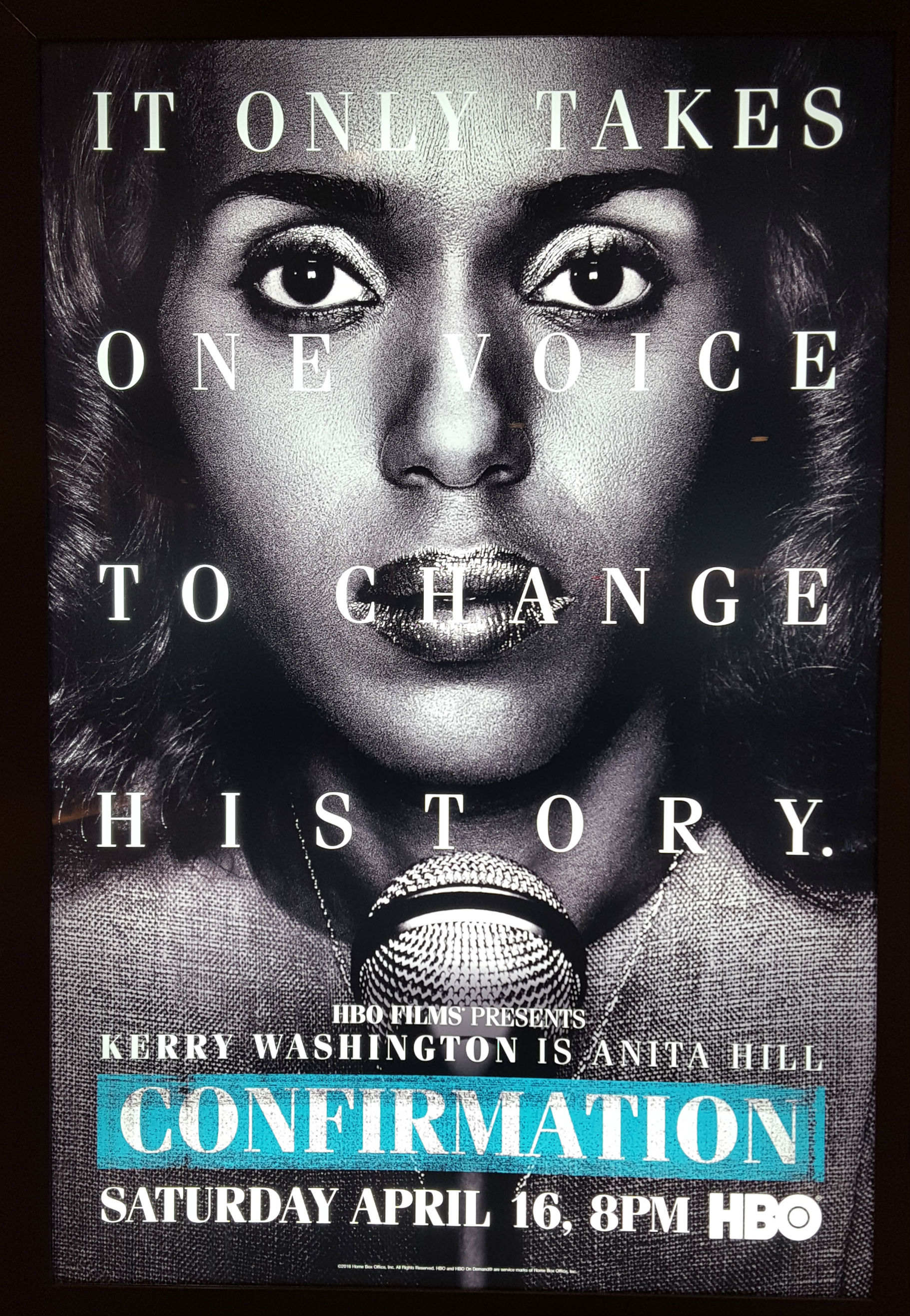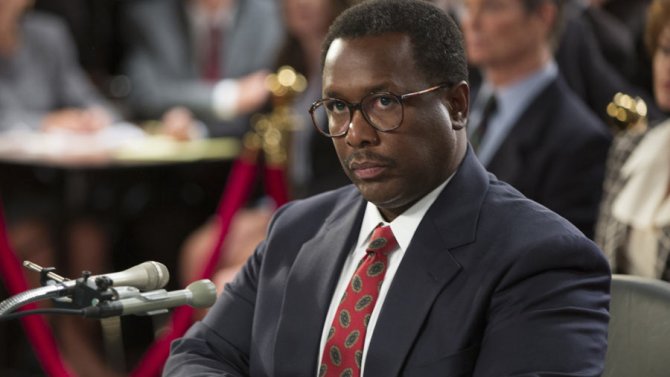The email sent will contain a link to this article, the article title, and an article excerpt (if available). For security reasons, your IP address will also be included in the sent email.
 Kieran, here. Politics, even at their most abstract are ultimately personal. At its best moments, HBO's Confirmation directed by Rick Famuyiwa’s (Dope) and written by Susannah Grant (Erin Brockovich) understands this. Anita Hill’s (Kerry Washington) 1991 allegations of sexual harassment against Justice Clarence Thomas (Wendell Pierce) on the eve of his confirmation to the US Supreme court is a subject about which few who can remember are indifferent. Who was lying and about what? What did the Anita Hill’s testimony say about the positions of gender, race and political alignment in this country? These are the kinds of questions that evoke vociferous, often angry opinions and the film doesn’t offer up easy answers.
Kieran, here. Politics, even at their most abstract are ultimately personal. At its best moments, HBO's Confirmation directed by Rick Famuyiwa’s (Dope) and written by Susannah Grant (Erin Brockovich) understands this. Anita Hill’s (Kerry Washington) 1991 allegations of sexual harassment against Justice Clarence Thomas (Wendell Pierce) on the eve of his confirmation to the US Supreme court is a subject about which few who can remember are indifferent. Who was lying and about what? What did the Anita Hill’s testimony say about the positions of gender, race and political alignment in this country? These are the kinds of questions that evoke vociferous, often angry opinions and the film doesn’t offer up easy answers.
The truth of whether Clarence Thomas sexually harassed Anita Hill is secondary. Thomas, as rendered by Pierce in what is actually a small role with few spoken lines, is a beleaguered public figure, forced to defend himself and deal with the consequences these allegations had on his personal and professional life. I say this not to imply that Thomas is innocent (I’ve always thought he was guilty). But, as is often the disgusting and sad truth about men who commit these crimes, they’re not always technically lying when they maintain their innocence under oath. In order for it to truly be a lie, these men would have to believe that they did anything wrong in the first place. Whatever mental gymnastics Clarence Thomas had to go through in order to get to this place, his own words and Pierce’s subtle but precise performance clearly illustrate that Thomas does not believe he was guilty of any wrongdoing. When the film is examining the implications of a culture that allows men to make these leaps and how it turns victims into villains, it shines and Pierce is a key component of what makes this element works. He opts not to turn Thomas into a monster for it’s not the “monsters” who violate women and irrevocably damage lives. They are simply people, a much truer and scarier fact to fathom.
more...


 Return to Article
Return to Article